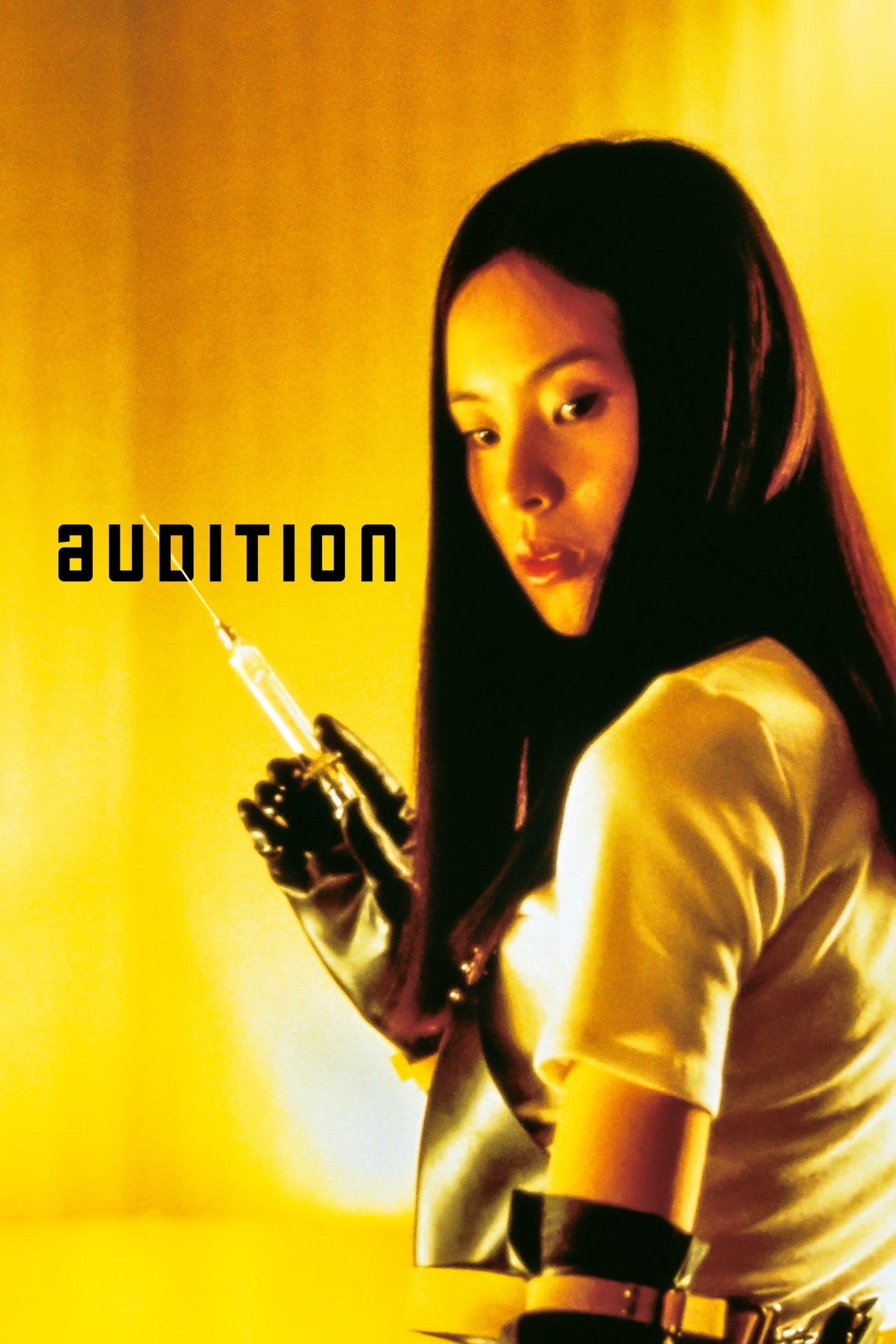
Seven years after the death of his wife, widower Shigeharu seeks advice on how to find a new wife from a colleague. Taking advantage of their position as a film company, they stage an audition. Interviewing a series of women, Shigeharu is enchanted by the quiet Asami. But soon things take a twisted turn as Asami isn’t what she seems to be.
26 Oct Audition (1999)
Simple Folding of a Love Story
People forget that ‘Casablanca’ was a B-movie, made quickly and cheaply. Its success depended on its unimportance — several modern trends were being followed by the various artists involved and they had the freedom to go a little further than they could on important films. As with that, so with this. As with Casablanca, no idea here is original. The Japanese have long been lonely, have long obsessed with child molestation, and have a deep tradition of domestic torture and all this is infused in their popular art. In the film community, there is a decades-long attention to the moody camera, and the meditative pace. The notion of blended realities goes back to Rashomon in film, and is far deeper, deeper in Japanese literature.
This is not a matter of Lynchism. This is naturally an artifact of Japanese popular art. Which is to say that the people involved aren’t as intelligent as Lynch and Egoyan and Greenaway — they are just attentive to matters of style. But when transported to the US art house, this project gets evaluated as if the filmmaker had the aspirations of Tarkovsky. Whether you view this as a cheap self-referential Sailor Moon or a piece of western art is up to you. I am ambiguous about this. The initial experience was heady because I assumed the real audition was of the man by the girls and that all the narrative folding was a matter of battling film personalities. Seen this way, it is a simple love story, where love is movie love, but haunted by suspicious dreams as are all loves that are not movie loves.
But the intent of the filmmaker is also important to me, because the experience is not with the accidental shape of the film, instead the film is a construct for a communion with the artist. In that communion, we have have a loving, lustful, exploitive, even tortured co-existence. Seeing the DVD and Miike’s presence and hearing his comment (and knowing some of his other films), one can see that this is no intellect, no artist, simply a busy stylist who is obsessed with fashion and who occasionally falls among the right people and ideas. I feel the same way about Bertollucci, by the way.
Incidentally, I saw this on the DVD especially manufactured for Blockbuster to an R rating. So I am certain that some of the power was scandalously erased. I certainly think that more explicit sex, both tender and exploitive, both from selfish longing and unqualified commitment would have made this deeper — in other words, more of the style of ‘Last Tango in Paris’ would have helped.
Posted in 2002
Ted’s Evaluation — 3 of 3: Worth watching.


No Comments